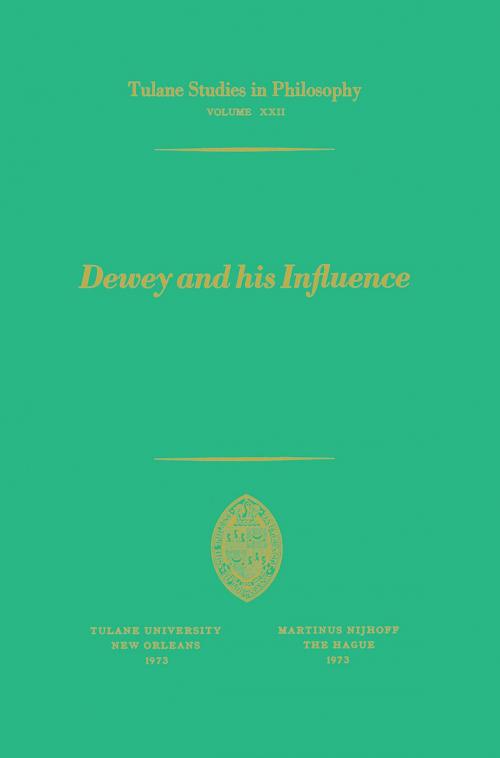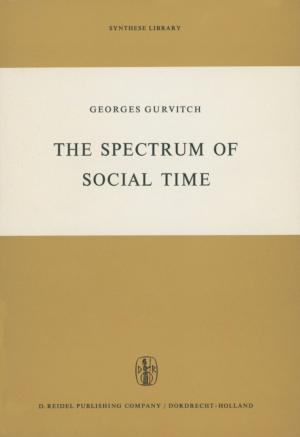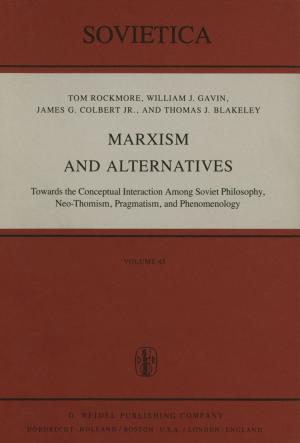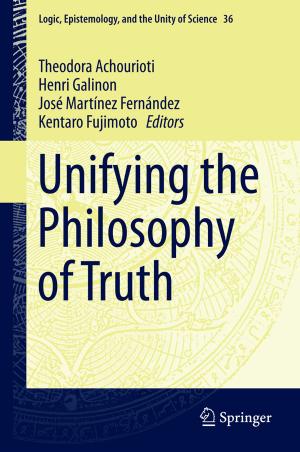Dewey and his Influence
Essays in Honor of George Estes Barton
Nonfiction, Religion & Spirituality, Philosophy, Political| Author: | ISBN: | 9789401024679 | |
| Publisher: | Springer Netherlands | Publication: | December 6, 2012 |
| Imprint: | Springer | Language: | English |
| Author: | |
| ISBN: | 9789401024679 |
| Publisher: | Springer Netherlands |
| Publication: | December 6, 2012 |
| Imprint: | Springer |
| Language: | English |
To those of us who have been privileged to call him col league, Georges Estes Barton is perhaps best and most fondly remembered as the man with a camera. At the beginning of every semester he could be observed carefully photographing each of his arriving students, and while we used to chaff him about this practice, all of us respected the motive behind it. For George Barton was and is a dedicated teacher and in his courses no student ever would be suffered to remain simply a face in the crowd. His favorite teaching technique has always been Socratic discourse, and he is, as Professors Roberts and DuBose remind us in their essays for this volume, a master of the method. In his chosen field of philosophy of education he has long been recognized as a leader, serving several terms on the Executive Committee of the Philosophy of Education Society and in I963 as its President. In I966 St. Edwards University conferred upon him the honorary degree LL.D in recognition of his significant contributions to curriculum development. Following a distinguished career in general education and educational research at the Rochester Institute of Technology and at the University of Chicago, Professor Barton was ap pointed in I956 to direct Tulane's Inter-Disciplinary Program for the Preparation of Liberally Educated Teachers. In Fe bruary I962, having seen the program through to a successful conclusion, he joined the Department of Philosophy at Newcomb College as Associate Professor of Philosophy.
To those of us who have been privileged to call him col league, Georges Estes Barton is perhaps best and most fondly remembered as the man with a camera. At the beginning of every semester he could be observed carefully photographing each of his arriving students, and while we used to chaff him about this practice, all of us respected the motive behind it. For George Barton was and is a dedicated teacher and in his courses no student ever would be suffered to remain simply a face in the crowd. His favorite teaching technique has always been Socratic discourse, and he is, as Professors Roberts and DuBose remind us in their essays for this volume, a master of the method. In his chosen field of philosophy of education he has long been recognized as a leader, serving several terms on the Executive Committee of the Philosophy of Education Society and in I963 as its President. In I966 St. Edwards University conferred upon him the honorary degree LL.D in recognition of his significant contributions to curriculum development. Following a distinguished career in general education and educational research at the Rochester Institute of Technology and at the University of Chicago, Professor Barton was ap pointed in I956 to direct Tulane's Inter-Disciplinary Program for the Preparation of Liberally Educated Teachers. In Fe bruary I962, having seen the program through to a successful conclusion, he joined the Department of Philosophy at Newcomb College as Associate Professor of Philosophy.















